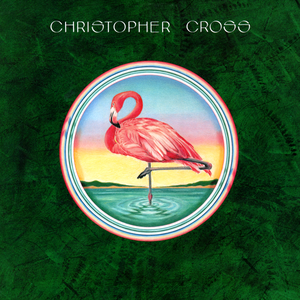Published on May 21, 1999
A year ago, when I reviewed Christopher Cross’s album
Walking In Avalon, I raised the question of why this guy had
fallen out of public favor. After all, he was still producing the
same light pop with powerful hooks that he had become famous for on
his 1979 self-titled debut album.
It’s been some time since Cross has gotten his turn here, so
into the Pierce Memorial Archives for
Christopher Cross – and while I can’t say I’ve discovered
why he’s not a superstar anymore, it’s a little clearer to me why
he became so popular at that time in music.
Cross’s gift as a songwriter and as a musician is simply
explained: He knows how to write a good song, and then deliver the
material. (Sounds simple, but for each band that figures out how to
do it, there are dozens that can’t.) There’s a reason why songs
like “Sailing” have remained in people’s memories for 20 years.
Without a good musical melody behind it that allowed people to
drift away in their own thoughts, you and I probably wouldn’t
remember the track if it came to us on a ’70s compilation album.
But that’s just it: Cross
did write an excellent song, and that’s why it has lasted so
long.
Listening to this album, a flood of memories came back to me
from when I was nine years old. I remember hearing songs like “Ride
Like The Wind” become big hits while camped out in front of the
radio. I remember how “Sailing” and “Never Be The Same” quickly
became favorites over the airwaves – and, thanks to this album, I
remembered the fourth single I had forgotten about all this time,
“Say You’ll Be Mine”.
Of the remaining tracks, a few disappoint just because they
don’t rise to the same levels as the better-known tracks (“Poor
Shirley,” “Spinning”), while others make me wonder why we didn’t
hear more of these at the time (“Minstrel Gigolo,” “I Really Don’t
Know Anymore”). With one or two exceptions, Cross constantly was
hitting the pop rock target – and had nearly dead aim on the
bull’s-eye.
And therein lies one explanation for Cross’s success. Four
words: right place, right time. If you really get into
Christopher Cross, you could argue that it was like the
Doobie Brothers had they been located in Texas. (Michael McDonald’s
contributions to this album help a little bit.) Both Cross and the
Doobies experienced great success around this time (granted, the
Doobies had experienced success for much of the ’70s).
I’m not saying that Cross tried to clone the Doobies; I can hear
many differences between
Christopher Cross and
Minute By Minute, for example. And I don’t want to discount
Cross’s talents by any means; I do like this album on its own
terms. But I do wonder if the level of success Cross experienced
would have been as high had the public’s taste in music been a
little different at that time.
Gee, I think I’ve dug myself into a hole here… but the overall
message is clear.
Christopher Cross is an album that not only justifies the
superstardom he all-too-briefly experienced, but is still enjoyable
20 years later. More importantly, it leaves us asking yet again:
Why isn’t this man still a bigger star than he is now?
